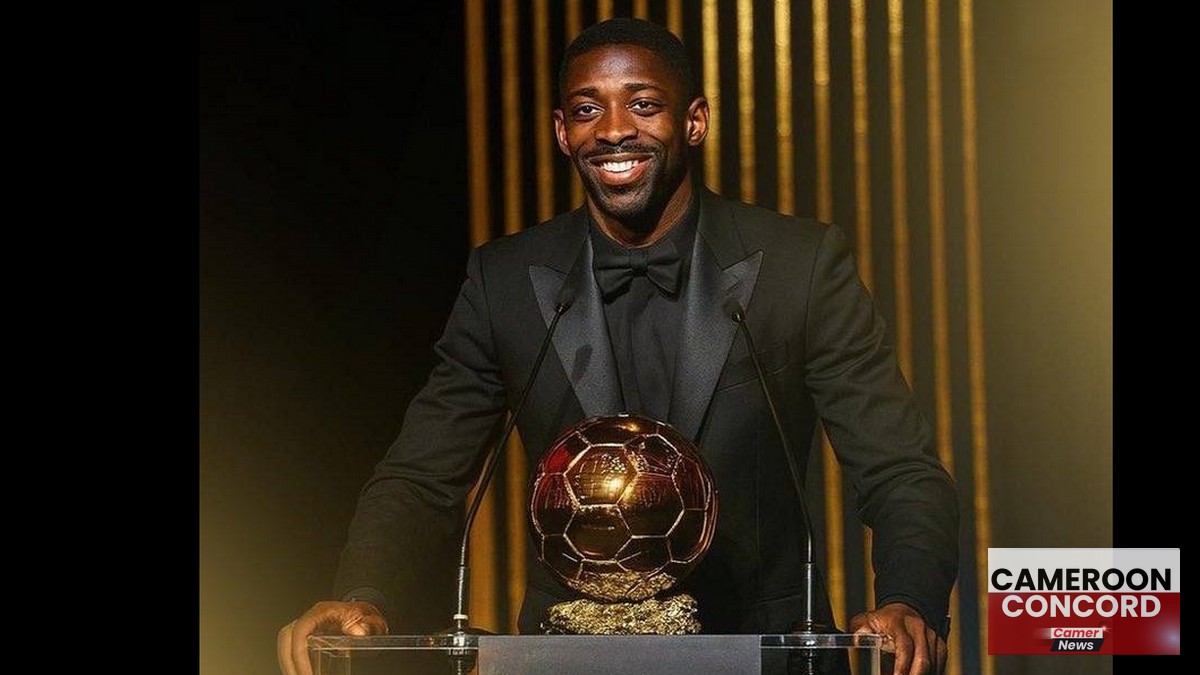- Details
- Sports
Africa’s Son Ousmane Dembélé Lifts Ballon d’Or
For the first time in three decades, the Ballon d’Or trophy has been lifted by a player of African heritage. Ousmane Dembélé, the Paris Saint-Germain forward, was announced on Monday night in Paris as the winner of the world’s most prestigious individual football prize.

The 28-year-old attacker, born in Vernon, France to Mauritanian and Senegalese parents, triumphed in his debut nomination, cementing himself in the annals of football history. His victory comes exactly 30 years after Liberia’s George Weah became the first and, until now, the only African national to win the award in 1995.
Dembélé’s season was electrifying. His dazzling runs, precision dribbling, and vital goals for PSG carried his team deep into European competition. Voters were swayed not just by statistics, but by the sense that Dembélé had finally realized the potential that had followed him since his teenage years at Rennes.
The win also carries continental weight. For decades, African players have come close but fallen short at the Ballon d’Or podium. Mohamed Salah, Egypt’s talisman, finished 4th this year, adding to past finishes of 5th and 6th. Senegal’s Sadio Mané finished 2nd in 2022. Samuel Eto’o, Didier Drogba, and Yaya Touré all had their peaks largely overlooked by a voting system long accused of Eurocentrism.
This time, however, the tide shifted. Dembélé’s performance could no longer be ignored, even in a football establishment still reluctant to honor African excellence. His win sparked joy not only in France but across Africa, where fans flooded social media with messages of pride. “Dembélé’s victory is Africa’s victory,” one post read, echoing the pan-African sentiment that surrounded George Weah’s win three decades ago.
The historical context is impossible to ignore. Since its creation in 1956, the Ballon d’Or has been dominated by Europe and South America. Africa has been consistently marginalized, with its players too often judged by club prestige rather than individual brilliance. Dembélé’s triumph may mark the beginning of a correction, a recognition that talent knows no borders.
Beyond symbolism, Dembélé’s journey is one of resilience. Injuries plagued his early years at Barcelona, threatening to derail a promising career. Critics dismissed him as inconsistent and wasteful. Yet under new management at PSG, he found a coach who trusted him, a role that maximized his creativity, and a maturity that allowed him to silence his detractors.
The 2025 Ballon d’Or podium reflected football’s shifting landscape. Behind Dembélé stood Jude Bellingham (England) and Erling Haaland (Norway), both younger stars representing Europe’s next generation. Mohamed Salah finished 4th, again underlining his frustrating near-misses with the award.
But it was Dembélé who made history. The award was presented to him by George Weah himself, now Liberia’s outgoing president, creating an emotional link between Africa’s past and present football heroes. “I see in Dembélé the continuation of what we fought for,” Weah said. “Talent from Africa deserves the world stage.”
For African fans, the significance goes far beyond football. The win is a reminder of representation, of the continent’s ability to rise above systemic exclusion and claim its place at the highest levels.
Dembélé, visibly moved, dedicated his award to his mother Fatimata, who immigrated from Mauritania and made sacrifices for her son’s dream. “This is for her, for my family, and for Africa,” he said, his voice breaking.
As celebrations erupted in Paris, Nouakchott, Dakar, and Bamako, one truth was clear: Ousmane Dembélé’s Ballon d’Or is not just a personal triumph. It is a continental victory.
- Details
- News Team
- Hits: 2808
